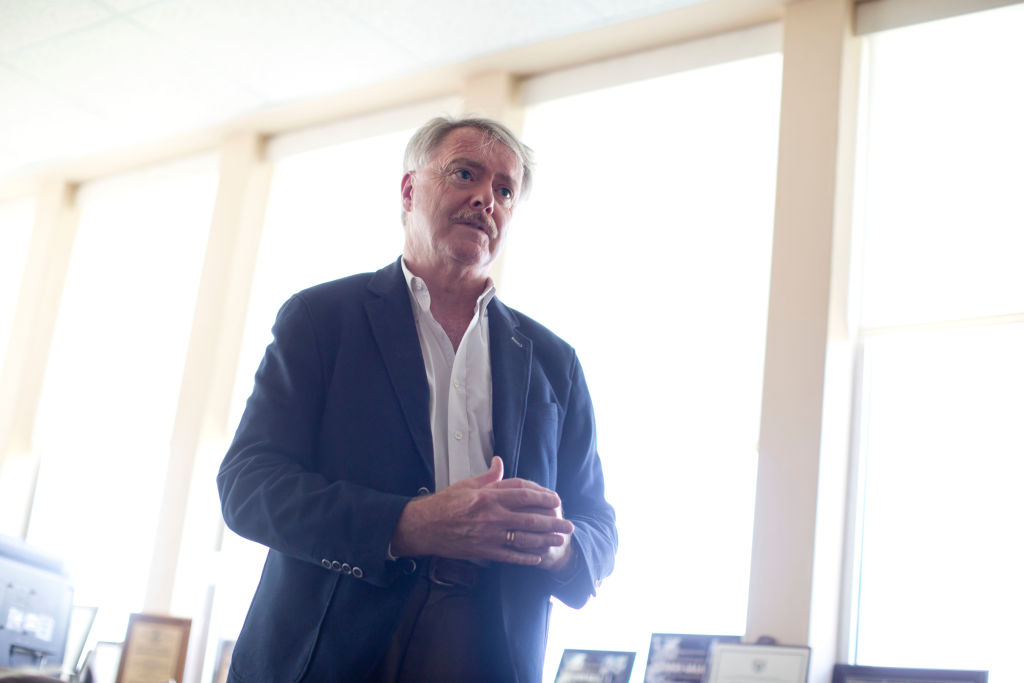You can either follow the health guidelines or you can be dead.

If that message seems blunt, it’s supposed to be, says Mike Bradley.
The Sarnia, Ont. mayor is pleading with residents to physically distance and self-isolate as health officials in Lambton County work to quell rising case numbers and a COVID-19 outbreak at a retirement home in the city, which has left several residents dead.
The county on Thursday recorded a total of 59 confirmed cases of COVID-19, along with six deaths. Four of those deaths have involved residents of Landmark Village.
According to the Sarnia Observer, multiple residents and staff at the facility have also tested positive for COVID-19 because of the outbreak — three staff members on Wednesday alone.
The outbreak at Landmark Village is one of 32 reported at long-term care homes across the province as of Thursday.
980 CFPL has reached out to Landmark Village’s parent company, Steeves and Rozema Group, for comment.
In an interview Wednesday with CBC London, the company’s CEO, John Scotland, said he wasn’t sure how the novel coronavirus entered the facility.
“We understand that public health is tracing those interactions in the public,” he told the broadcaster. “We have not heard anything from them that they’ve determined anything definitive.”
Bradley said he was very familiar with the home, describing it as well-run and upscale.

Get weekly health news
“There’s never been any issues there before. And something just went wrong,” he said, noting that his main goal now wasn’t looking back and getting retribution for what went wrong, “or what didn’t or should have happened.”
“It’s how do we deal with the immediate crisis?” he said.
One way, he says, is reinforcing the importance of staying at home and engaging in physical distancing — advice some in the community seem to be ignoring.
Thus, this blunt message to those both inside and outside the community: “You have an option. You can either follow the guidelines or you can be dead.”
“There’s this idea out there that these rules and advice apply to other people, not to the people that are breaking the rules,” Bradley said.
“In this case, it’s not like other situations.. If you have the virus or you’ve been in contact with someone with the virus, it’s like going into a crowd and shooting a gun off at people at random. It can be just devastating.”
It’s not entirely clear why some people choose to flout the guidelines, but Bradley says it doesn’t help that some get their information from less than reliable online sources.
“People are picking up things that are not correct or untrue,” Bradley said, highlighting, in particular, the debate over whether people should wear protective masks out in public.
South of the border, the mayor of Los Angeles is recommending the city’s 4 million residents wear masks in public, and the U.S. Centers for Disease Control and Prevention has said it’s reviewing its guidance on the matter.
However, neither it nor the World Health Organization have changed their stance that most people don’t need to wear masks unless they’re sick.
Something else local officials are dealing with, Bradley says, is shifting messaging from U.S. President Donald Trump.
“Every time the President of the United States says something or goes in a different direction, then changes course again, it feeds the people here that don’t believe that this is a serious, serious issue.”
— With files from The Associated Press
Questions about COVID-19? Here are some things you need to know:
Health officials caution against all international travel. Returning travellers are legally obligated to self-isolate for 14 days, beginning March 26, in case they develop symptoms and to prevent spreading the virus to others. Some provinces and territories have also implemented additional recommendations or enforcement measures to ensure those returning to the area self-isolate.
Symptoms can include fever, cough and difficulty breathing — very similar to a cold or flu. Some people can develop a more severe illness. People most at risk of this include older adults and people with severe chronic medical conditions like heart, lung or kidney disease. If you develop symptoms, contact public health authorities.
To prevent the virus from spreading, experts recommend frequent handwashing and coughing into your sleeve. They also recommend minimizing contact with others, staying home as much as possible and maintaining a distance of two metres from other people if you go out.
For full COVID-19 coverage from Global News, click here.















Comments